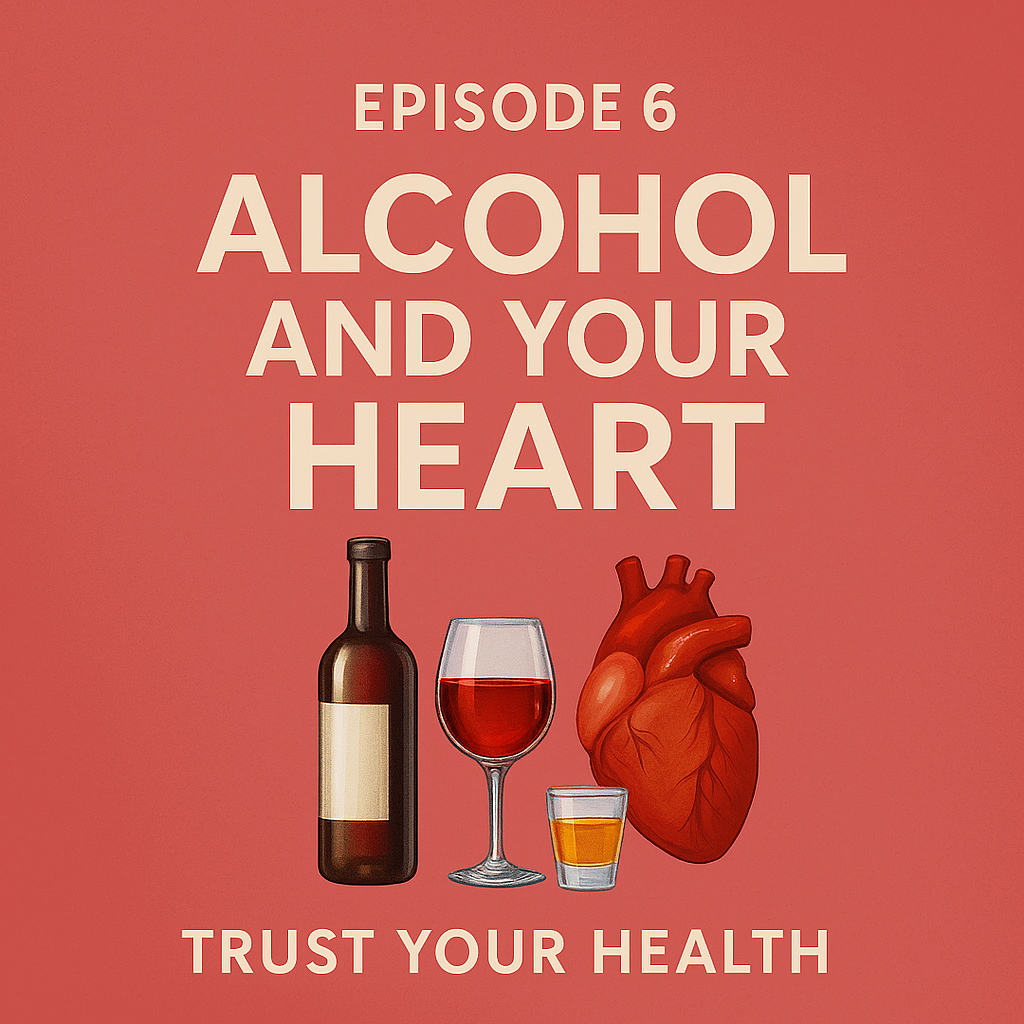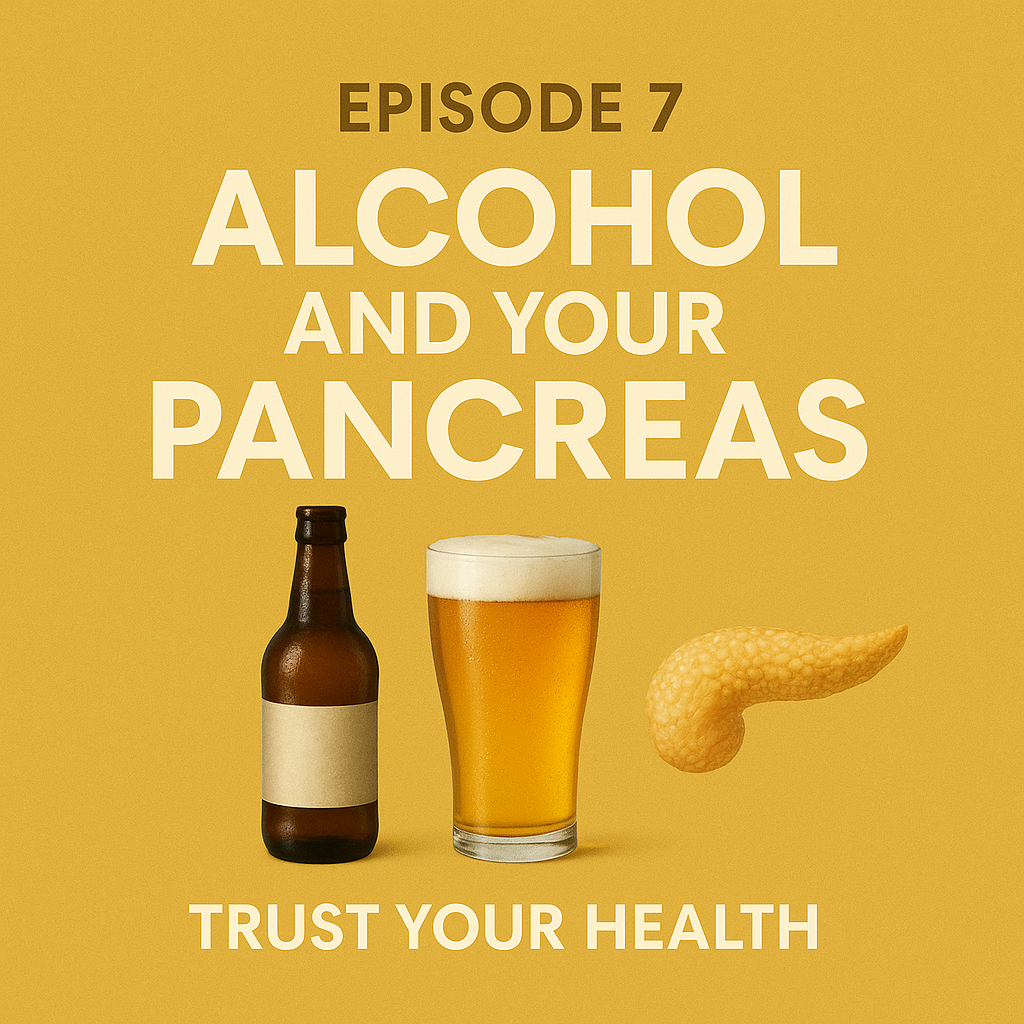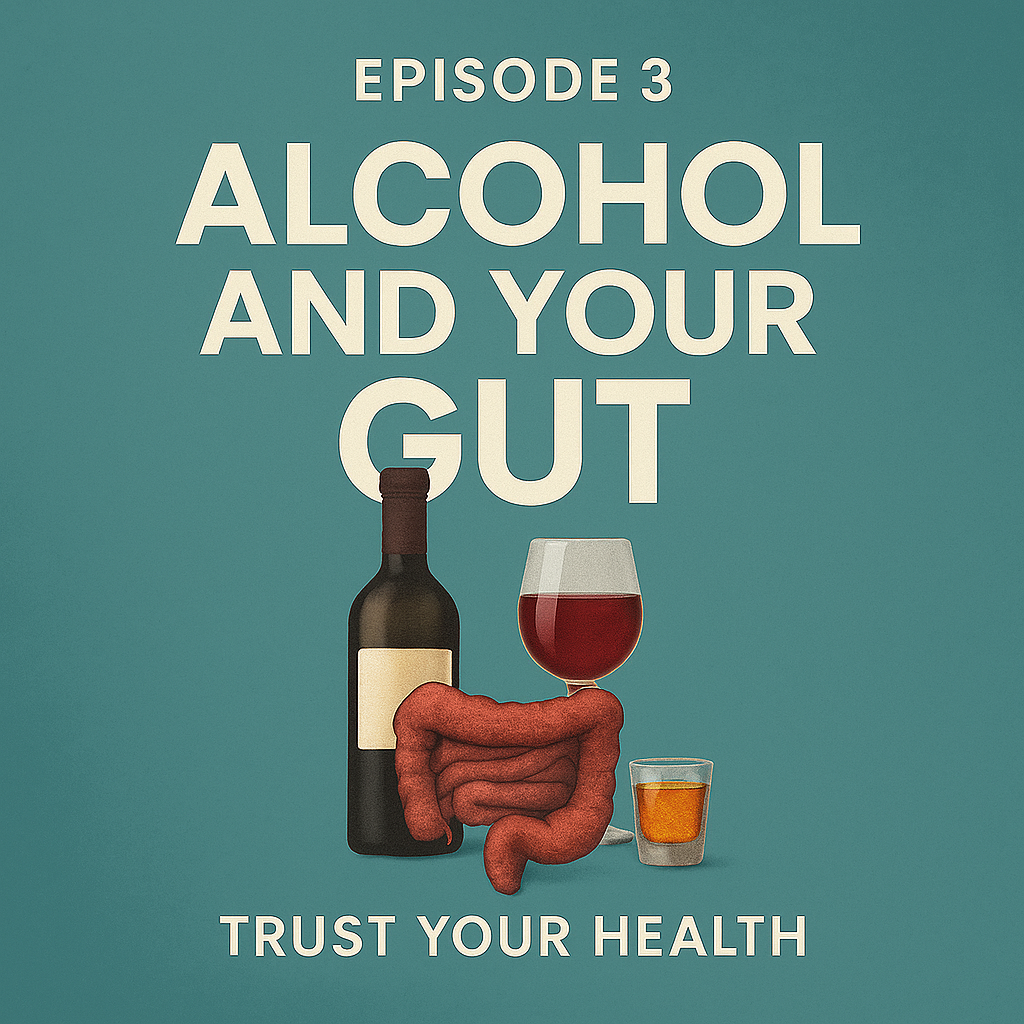Episode Transcript
For some people, coffee is smooth sailing.
But for others? It’s bloating, cramping, diarrhea — and a fast trip to the bathroom.
Why does caffeine seem to upset some people’s digestion and not others?
In this episode of Trust Your Health, we’re diving into how caffeine affects your gut, your microbiome, and your digestion — and what you can do if it’s giving you trouble.
Let’s start with the basics.
Caffeine is a known stimulant — not just for your brain, but for your gut, too. It increases the contractions of your intestines, speeding up how quickly food moves through your digestive tract.
That’s why coffee has a mild laxative effect for many people. In fact, studies show that even decaf coffee can stimulate bowel movements — though regular coffee tends to be stronger because of the caffeine.
For most people, this is harmless. But if your gut is already sensitive — due to conditions like irritable bowel syndrome, or IBS — the added stimulation from caffeine can make symptoms worse. You might feel bloated, gassy, or have diarrhea after drinking it.
Caffeine also increases acid production in your stomach, which can cause heartburn or aggravate ulcers in people who are prone to them.
Then there’s your microbiome — the trillions of bacteria living in your gut that play a crucial role in digestion and immunity. Some early research suggests that heavy caffeine intake may reduce the diversity of your gut bacteria, which could contribute to long-term digestive problems.
So why does it seem to affect some people and not others?
Part of the answer comes down to genetics — the same CYP1A2 gene we talked about in our last episode. If you’re a slow metabolizer of caffeine, it lingers in your system longer, which can irritate your gut more over time.
Another factor is your baseline gut health. If your digestive system is already inflamed or out of balance, even a small amount of caffeine can tip things over the edge.
So what can you do?
First — pay attention. Notice how your gut feels after coffee, tea, or energy drinks. If you feel fine — great. But if you notice bloating, cramps, diarrhea, or heartburn, try cutting back or switching to decaf for a week and see if symptoms improve.
Second — consider timing. Drinking caffeine on an empty stomach can sometimes make symptoms worse. Try having it after a small meal instead.
And finally — don’t ignore persistent digestive issues. If your symptoms continue even after cutting back on caffeine, talk to your doctor to rule out other causes.
Caffeine and your gut can have a delicate relationship — and finding your balance can make a big difference.
In our next episode, we’ll move further down the line — to your kidneys — and explore how caffeine affects hydration, kidney stones, and more.
Thanks for listening to Trust Your Health. Because trusting your health begins by understanding your body.
Be sure to follow the podcast so whenever you need clear, honest advice about your body, we’ll be here to help you make sense of it.


